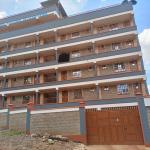
Understanding Property Valuation in Kenya: What Your Home Is Really Worth
Have you ever wondered what factors truly determine the price tag on a property in Kenya? Whether you're looking to sell your home in Juja, purchase land in Kiambu, secure a mortgage for an apartment in Nairobi, or simply understand your investment's potential, grasping property valuation is crucial. It’s more than just a number; it’s an informed estimate of a property's market value at a given time.
At 254homes.co.ke, we believe in empowering our clients with knowledge. Here’s a breakdown of what goes into understanding your property’s true worth in the Kenyan market.
Why Property Valuation Matters
Property valuation isn't just for sellers. It's essential for:
- Sellers: To set a realistic and competitive asking price, attracting buyers quickly.
- Buyers: To ensure they are not overpaying and to negotiate effectively.
- Lenders: Banks require valuations for mortgage approvals to assess collateral.
- Investors: To gauge potential returns and make informed investment decisions.
- Legal & Taxation Purposes: For calculating stamp duty, capital gains tax, and inheritance.
- Insurance: To determine adequate coverage.
Key Factors Influencing Property Value in Kenya
Several intertwined elements dictate a property's worth. Understanding these helps you appreciate the valuation process:
- Location, Location, Location: This remains paramount.
- Proximity to Amenities: Schools (like JKUAT), hospitals, shopping centers (e.g., Juja City Mall), transport links, and workplaces.
- Infrastructure: Quality of roads, access to reliable water, electricity, and internet.
- Neighborhood Appeal: Safety, community reputation, green spaces, and future development plans in areas like Thika Road or Syokimau.
- Specific Zoning: Whether the land is residential, commercial, or agricultural affects its potential use and value.
- Size and Type of Property:
- Land Size: Measured in acres or plots (e.g., 50x100 feet). Larger plots generally command higher prices.
- Built-Up Area: The total floor area of a house or apartment directly impacts its value.
- Property Type: A standalone house, townhouse, apartment, commercial building, or vacant land each has different valuation metrics.
- Condition and Age of the Property:
- Structural Integrity: The soundness of the foundation, walls, and roof.
- Finishes: Quality of tiling, paintwork, fixtures, and fittings.
- Renovations & Upgrades: Modern kitchens, bathrooms, smart home features, and recent renovations can significantly boost value.
- Age: Newer properties often command higher prices, but well-maintained older homes in prime locations can retain value.
- Amenities and Features:
- Internal: Number of bedrooms/bathrooms, presence of a study, pantry, servant's quarters, etc.
- External/Estate: Parking availability, swimming pool, gym, communal gardens, boreholes, reliable security (gated communities are highly valued in Kenya).
- Connectivity: Fibre optic internet readiness.
- Market Dynamics:
- Supply and Demand: High demand with low supply in areas like Juja or prime Nairobi suburbs drives prices up.
- Economic Conditions: Inflation, interest rates, and overall economic growth in Kenya influence buying power and investment appetite.
- Comparable Sales (Comps): Recent sales prices of similar properties in the same locality are the most powerful indicator of market value.
How is Property Valued in Kenya? (Common Methods)
Professional valuers in Kenya typically employ a combination of methods:
- Sales Comparison Approach (Market Approach): The most common method. It involves comparing the property to similar properties that have recently sold in the same area. Adjustments are made for differences in features, condition, and location.
- Income Capitalization Approach: Used for income-generating properties (like rental apartments or commercial buildings). It estimates value based on the property's potential to generate future income.
- Cost Approach: Estimates the cost to replace the property (land + cost of new construction - depreciation). This is often used for newer constructions or unique properties where comparables are scarce.
When to Get a Professional Valuation
While online estimates can provide a general idea, a professional valuation by a registered valuer (regulated by the Valuers Registration Board of Kenya) is essential for:
- Selling or buying a property.
- Applying for a mortgage or loan.
- Insurance purposes.
- Dispute resolution (e.g., inheritance, divorce).
- Investment analysis.
At 254homes.co.ke, we work with reputable valuers and provide market insights to help you understand your property's true potential. Whether you're listing a property for sale or rent, or scouting for your next investment, knowing its real worth is your first step to a successful transaction.










